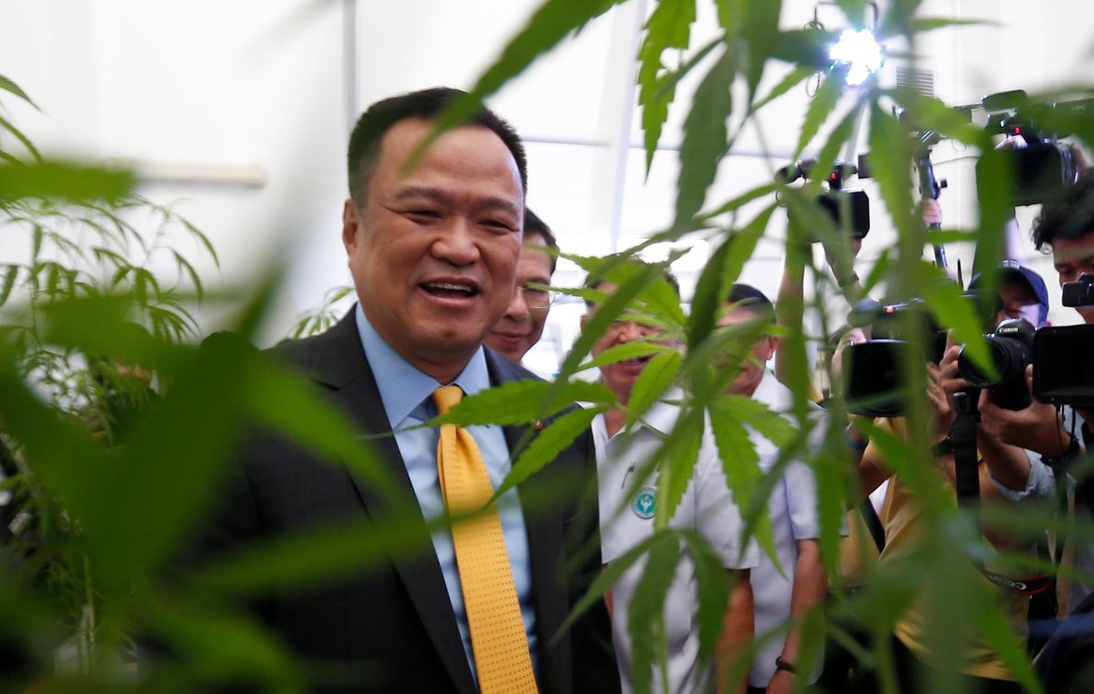
Opposition politicians said Public Health Minister Anutin Charnvirakul had caused social problems and violated several laws by decriminalizing cannabis without imposing proper controls.
On Tuesday, opposition ministers questioned Mr. Anutin as soon as the House began debating their motions of no confidence in government representatives.
Pheu Thai Party’s main opposition whip Sutin Klungsang started his arguments with a video that showed Mr. Anutin stating that his Bhumjaithai Party would bring happiness to the people through cannabis decriminalization and permits for the plant’s cultivation.
The minister said in the video clip that cannabis would be sold and used to make food and prevent or treat illness, adding that people could even smoke it in private.
However, Mr. Anutin’s speech violated local and international law, Mr. Sutin stated. He also expressed concerns about the comment that cannabis could be smoked in private.
According to Mr. Sutin, the cannabis policy violates the United Nations Office on Drugs and Crime’s 1961 Single Convention on Narcotic Drugs. Consequently, it breaches the decision of the Thai authorities, who upheld the UN’s ruling.
When the policy was passed, cannabis was placed on the list of dangerous narcotics. Therefore, its use was limited to medical and research purposes, with other strict controls on its consumption.
However, the Public Health Ministry decriminalized cannabis on June 9 and failed to impose laws or controls on its use. That was considered a violation of international law, and “the country could face international legal action over this issue,” said the main opposition whip.
Mr. Sutin also argued that the cannabis policy violated the constitution’s Section 66, which requires the nation to cooperate with international organizations to ensure the public interest is protected.
After cannabis decriminalization, vendors sold derivative products and cannabis-infused foods on the streets, giving young people free access. Many people ended up in the hospital after getting sick from overusing the plant.
“Cannabis damages the brains of young people… There will be serious social problems,” he added, asking the government if it could really protect young people from cannabis abuse, as the plant could be grown at home.
Mr. Sutin also blamed Prime Minister Prayut Chan-o-cha for accepting Bumjaithai’s cannabis decriminalization proposal as a condition for the party to support the coalition despite opposition from medical, judicial, and religious organizations.




















